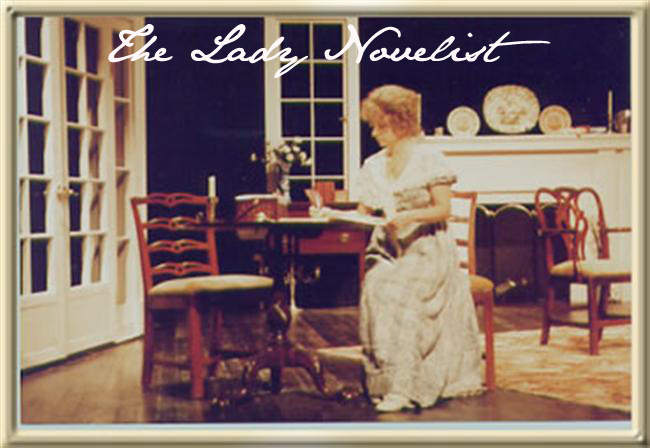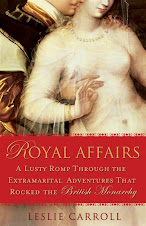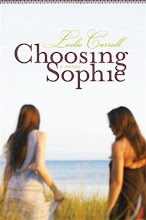Every author I know can't resist the temptation to Google herself from time to time. And if she says she doesn't, chances are she's either shading the truth or has a core of steel.
As Oscar Wilde famously said, "the only way to get rid of temptation is to yield to it. I can resist anything but temptation." But this reaction often exacts a price. Sometimes, we're not so thrilled with what we find online when we search our names or book titles. Other times we're delighted -- for example, when we find terrific reviews posted by book bloggers we had heretofore not known about.
And sometimes we're confused, bemused, and amused, or some mash-up of all three emotions.
An old friend recently emailed me to ask if I knew that my novel BY A LADY: Being the Adventures of an Enlightened American in Jane Austen's England (written under the pen name Amanda Elyot), was mentioned in the new nonfiction book by Claire Harman, JANE'S FAME. Harman's title says it all. And my book merits a mention from Ms. Harman among the crop of novels inspired by Austen's writing, or her very existence.
A subsequent Google search of my book title revealed that it is also the subject of discussion in a Spring 2010 article by Juliette Wells included in Persuasions online, the web version of the academic house organ published by the venerable Jane Austen Society of North America. The topic is Jane as a fictional character.
Few people know the lengthy and often fraught trajectory my manuscript took from conception to publication, so it feels rather odd (a) that the novel, or even I as an author, carries the sort of weight that makes it worthy for academic discussion; and (b) that a scholar can dissect what I had intended as a literary romp, absent deliberate social commentary on the life and works of my favorite author and attribute to it concepts or intentions that, well, had not occured to the author herself.
This author, I mean. Not Jane. Yet all I could think when I read Ms. Wells's essay (did she choose to include BY A LADY because my heroine's surname is Welles?) is What Would Jane Think? Because this sort of scholarly analysis is precisely what we do with Austen's own work. Or Shakespeare's for that matter. Or any number of famous (and, often, mostly dead) writers.
Please don't imagine that I think for even a nanosecond, that I deserve to be in the hallowed pantheon inhabited by the likes of Austen and Shakespeare. Or that I am in any way knocking Ms. Wells's intriguing essay. I was just gobsmacked to find my novel discussed as part of an academic topic in such a rarefied forum as the JASNA world stage. Ditto for the mention in Ms. Harman's well reviewed study of Jane's evergreen allure.
BY A LADY was born from an experience I had performing the role of Jane Austen in a beautiful two-character drama written by Howard Fast, a prolific novelist himself. I was so inspired by Fast's script, and the set and costume design of our production that I could not help thinking "what if" I were to be transported back in time to Jane's era. The photograph that forms this blog's banner is of me, playing Jane.
The very notion of writing a time-travel (and I began to write the manuscript way ahead of the Jane-Austen-as-a-meta-character-curve in late 1998, finishing it in the early months of 1999) in itself (so I believe, anyway) telegraphs to the reader that because we are in an alternate universe, that universe is intended to be a fairly fun place to inhabit as a reader, even if it is not exactly a walk in the park for my heroine).
I had researched the era, manners, mores, fashions, etc., but the tip of my tongue (though not all of it) was in my cheek. My original title, SENSE AND SENSUALITY, supported that premise. I was having a lark and hoped that readers would enjoy the novel in a spirit of fun. This is precisely why I'm sort of tickled to find BY A LADY analyzed for the author's motivations and intentions as though it was MANSFIELD PARK.
Nowadays, I could throw in a few zombies, sea monsters, and werewolves and probably waltz all the way to the bank (or at least the bookstores) with it. But because my manuscript was mining new literary territory at the time, it took half a dozen years for BY A LADY to reach the shelves. My stellar agent Irene Goodman submitted it to numerous editors, all of whom rejected it for various reasons, most of which had to do with the fact that they didn't know where a major bookstore chain would shelve it, and therefore, how the publishing house should market it.
The process began a dozen years ago; we were way ahead of the Jane as a fictional (though supporting) character/time travel curve. Editors would ask: Is this a romance? Is this historical fiction? Is this a paranormal? Before they would consider publication, a few editors requested rewrites from me, the better to fit it into a more specific niche. The manuscript went through myriad incarnations as I twisted myself into a pretzel to give them what they'd asked for.
My favorite rejection letter came from one of the business's top romance editors, someone I admired (and still admire and adore). Ironically, a few years later we ended up working together in a different fictional genre. But her rejection letter contained the sort of sentence that authors always remember: she wrote something along the lines of "this has the most sensuous love scene I have ever read..." Then she wrote that they nonetheless had to reject the manuscript because they didn't know what to do with it.
My response? The little voice that remained inside my head replied, "Publish it!"
In any case, what ultimately became BY A LADY was a romance and a paranormal (time-travel) and a work of historical fiction. And the road to publication widened several years later when the meta-Austen curve that I had been traversing began to resemble a straightaway, with other referential novels pouring over publishers' transoms.
So I just thought I'd share the backstory of BY A LADY, in case people are curious, after reading any of the recent references to the novel online or in print. It still feels truly weird to me to find my little literary volume a subject of scholarly analysis. I have to say, I'm strangely flattered to have been invited to the party even if the hostess may not be entirely sure what I'm wearing.
Has anyone else been the subject of an academic discussion? I'd love to hear your reaction to it.
P.S. Amanda is available for interviews.
+for+blog+header+copy.jpg)


.jpg)
.jpg)




